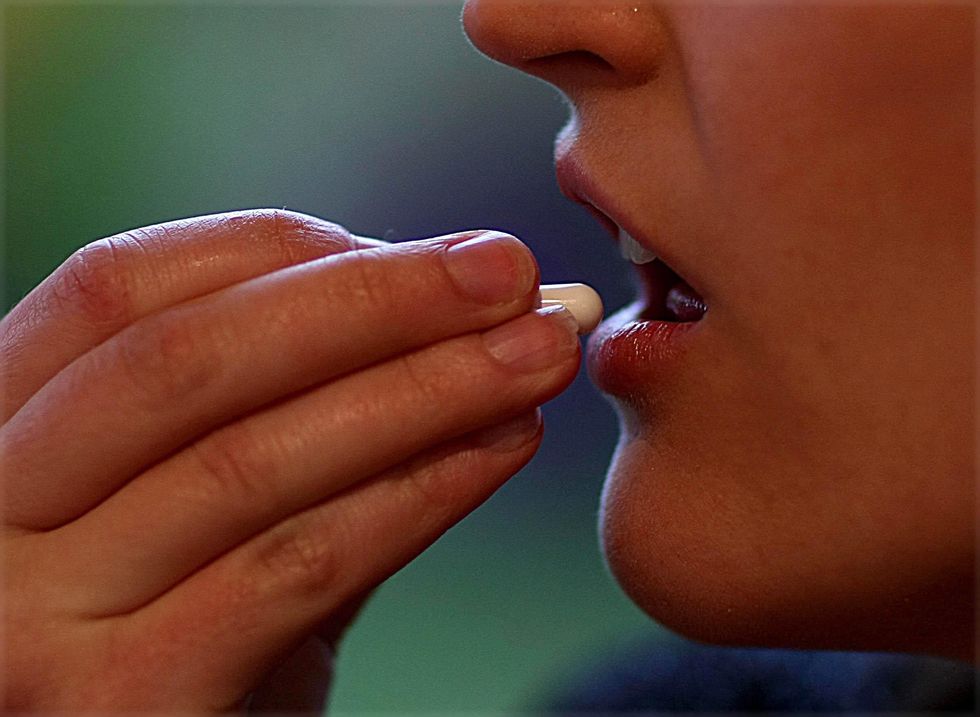Cheap supplement found to reverse age-related memory decline by three years

Popping a daily multivitamin may reverse age-related memory decline by three years
|Getty Images

It is one of three studies suggesting a daily multivitamin can improve memory function
Don't Miss
Most Read
Popping a daily multivitamin may improve memory performance to the extent that it makes you three years younger, research suggests.
The research is part of a larger study examining the effects of a multivitamin and/or cocoa (the main ingredient in chocolate) on cardiovascular and cancer outcomes.
A prior sub-study found that a daily multivitamin improved thinking and memory — at least when evaluated with cognitive testing completed by phone.
For this study, 3,562 participants were willing and able to perform some tests of thinking and memory on a home computer. Half received a multivitamin; the other half received a placebo.
The participants identified as 93 percent white, 2.5 percent African American, and 1.4 percent Hispanic, so the results may not be generalisable. They were also well educated: more than half had completed college. In both groups, the average age was 71.

A prior sub-study found that a daily multivitamin improved thinking and memory
|Getty Images
The investigators evaluated the participants' thinking and memory at baseline and after one, two, and three years.
For the memory test, participants were asked to memorise 20 words shown consecutively on a computer screen.
Immediately after viewing these words, they had to type in as many words as they could remember (this was the primary measure of memory). Fifteen minutes later, they also typed in all the words they recalled (a secondary measure of memory).
Other secondary measures included:
- A novel object discrimination test (is this object the same or different from one recently shown?)
- An executive control test (in an array of nine arrows, is the central arrow red or blue?).
The participants repeated all of the tests one, two, and three years later.
What did the researchers find out?
The two groups differed in immediate recall at year one:
- Those who took a placebo went from immediately recalling an average of 7.21 words at baseline to 7.65 words (a difference of 0.43 words)
- Those who took a daily multivitamin group went from 7.10 words at baseline to 7.81 words (a difference of 0.70 words).
This result was statistically significant. Additionally, these small effects held up at years two and three. By year three, the placebo group immediately recalled an average of 8.17 words and the multivitamin group immediately recalled 8.28 words.
No differences occurred between the two groups on secondary memory and executive function tests.
A follow-up study published this year supported these findings, confirming consistent and statistically significant benefits of a daily multivitamin versus placebo for both memory and global cognition.
LATEST DEVELOPMENTS
Is there a catch?

The authors admitted that the effect of the multivitamin on immediate memory was small
| PAThere are important limitations to these studies. For example, they didn’t examine the effect on younger people and didn’t look at specific vitamins.
This means it isn’t clear what particular ingredient in the multivitamins had the observed effect.
The authors admitted that the effect of the multivitamin on immediate memory was small and may not be noticeable. However, they pointed out that this small effect could be important at the level of an entire population.
"This is intriguing," said Doctor Jeffrey Linder, chief of general internal medicine at Northwestern University Feinberg School of Medicine, who was not involved in the study.
But he agrees that the overall effect found in the study was quite small. "It seems like a pretty modest difference," Linder said, And he points out that the multivitamins had no effect on other areas of cognition evaluated in the study, such as executive function, which may be more important measures.
Furthermore, a 2023 review examined current supplements available on the market that include at least one of 18 common ingredients. The research found either no evidence or limited evidence that the following ingredients support memory:
- apoaequorin
- coenzyme Q10
- coffee extracts
- L-theanine
- omega-3
- vitamin B6
- vitamin B9
- carnitine
- ginkgo biloba
- Huperzine A.










